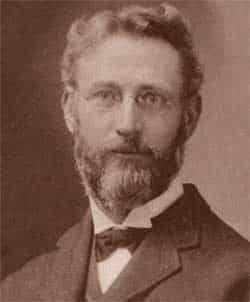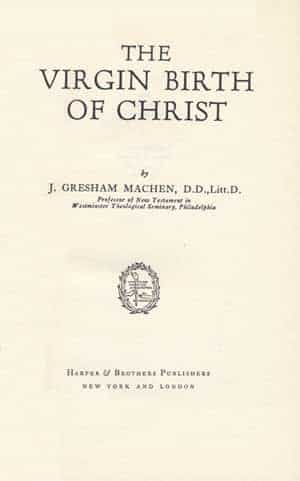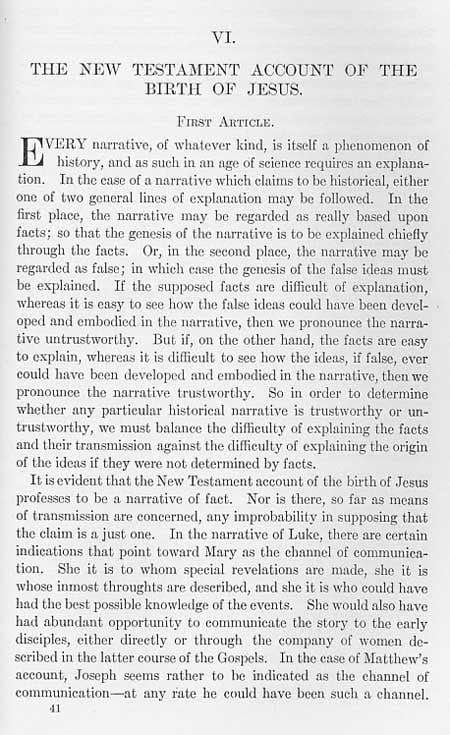This Day in Presbyterian History:
God’s Crowning Work in creation
With scant information available for this day, March 16, we return to another exposition of the Shorter Catechism. Question number 10 asks and answers, “How did God create man? A. God created man male and female, after his own image, in knowledge, righteousness, and holiness, with dominion over the creatures.”
We already had a question and answer on the general subject of creation. That was the theme of February 27 in these historical devotionals. Our Confessional Fathers gave us another catechetical answer on God’s crowning work in creation, namely, the creation of man.
Man’s nature is distinguished in Genesis chapters 1 and 2. In Genesis chapter 1, we have the description of man as being “male and female.” In the summary of creation in Genesis chapter 2, we have the reference to his soul and body. How contrary to this divinely stated truth is that of humanistic evolution. How we need to pray and work for a return in our culture of the majestic truth of special creation.
Notice especially the original character of our created parents as being “after the image of God.” There, of course, is no truth to the popular idea that this image created was some sort of physical resemblance to God. God is a Spirit and doesn’t have a body like man. Our confession fathers immediately define what they mean by God’s image, by stating that the image consists in “knowledge, righteousness, and holiness.” Our first parents had a conformity to the moral perfections of God.
Adam had knowledge in his understanding of God’s revelation of His creation. That was proved when he gave names to all of God’s creatures in Genesis 2:19 and verse 20. Second, Adam possessed righteousness in his will. Righteousness simply means obedience to God. Man was capable of this, though also capable of disobedience, as we sadly see in the fall into sin. Last, Adam was holy in his affections. He could love God and His creation, and especially his soon to be created wife, Eve.
It is true that sin marred that image deeply. Yet in Christ, that image can be restored by the grace of God. Paul in Ephesians 4:24 speaks of our new creation in Christ which we have “put on the new self, created after the likeness of God in true righteousness and holiness.” (ESV) And the same apostle wrote in Colossians 3:10, “and put on the new self, which is being renewed in knowledge after the image of God.” (ESV) Knowledge, righteousness, and holiness is being restored in the life of the believer. One day, in our glorification, it will be restored perfectly.
Last, man’s dignity is seen in the fact that he was given “dominion over the creatures.” Since he was God’s crowning creation, he was given the authority over the world of nature, not just animals. Here is the basis for the cultural mandate, or the view that the Christian has a mandate from God to bring all spheres of life under conformity to God’s Word.
Words to Live By: “O LORD, our Lord, how majestic is your name in all the earth!” Psalm 8:9 (ESV) Do you praise God for creation all around you?
Through the Scriptures: Joshua 16 – 18
Through the Standards: Christ Executes the Office of a King
WLC 45 — “How does Christ execute the office of a king?
A. Christ executes the office of a king, in calling out of the world a people to himself, and giving them officers, laws, and censures, by which he visibly governs them; in bestowing saving grace upon his elect, rewarding their obedience, and correcting them for their sins, preserving and supporting them under all their temptations and sufferings, restraining and overcoming all their enemies, and powerfully ordering all things for his own glory, and their good; and also taking vengeance on the rest, who know not God, and obey not the gospel.”
WSC 26 — “How does Christ execute the office of a king?
A. Christ executes the office of a king, in subduing us to himself, in ruling and defending us, and in restraining and conquering all his and our enemies.”






